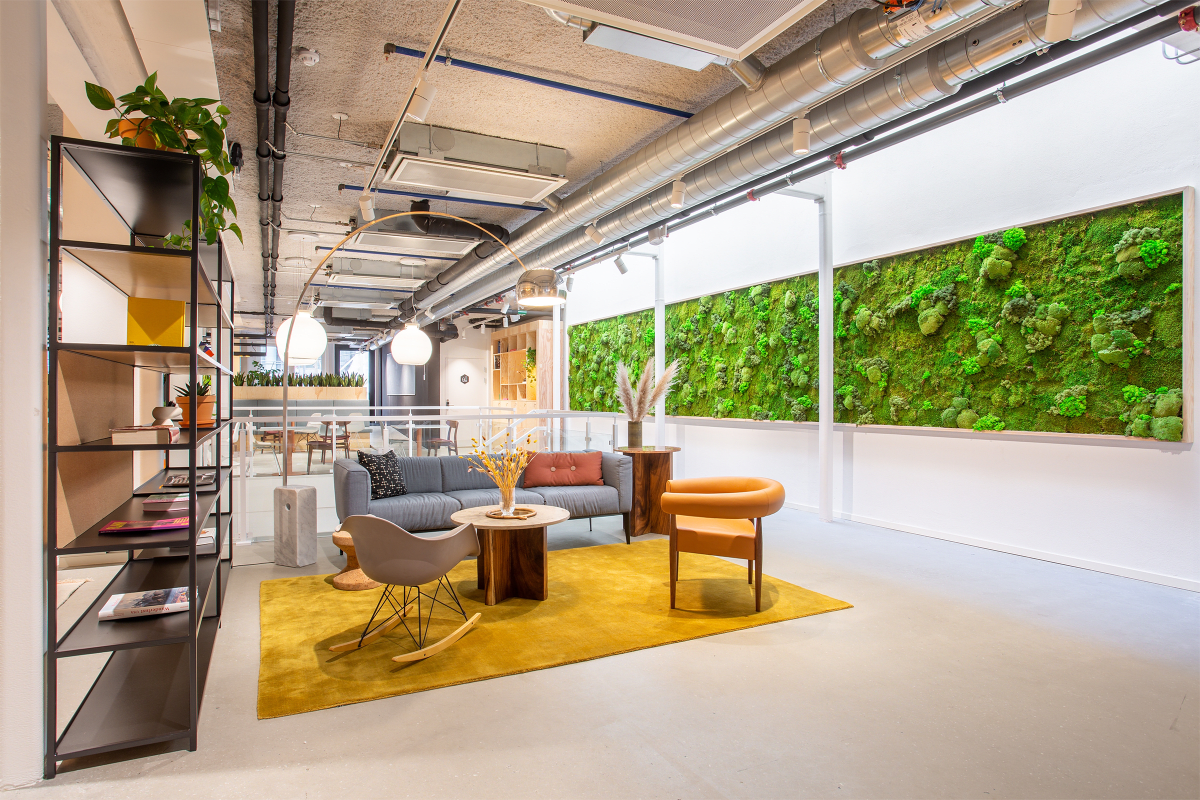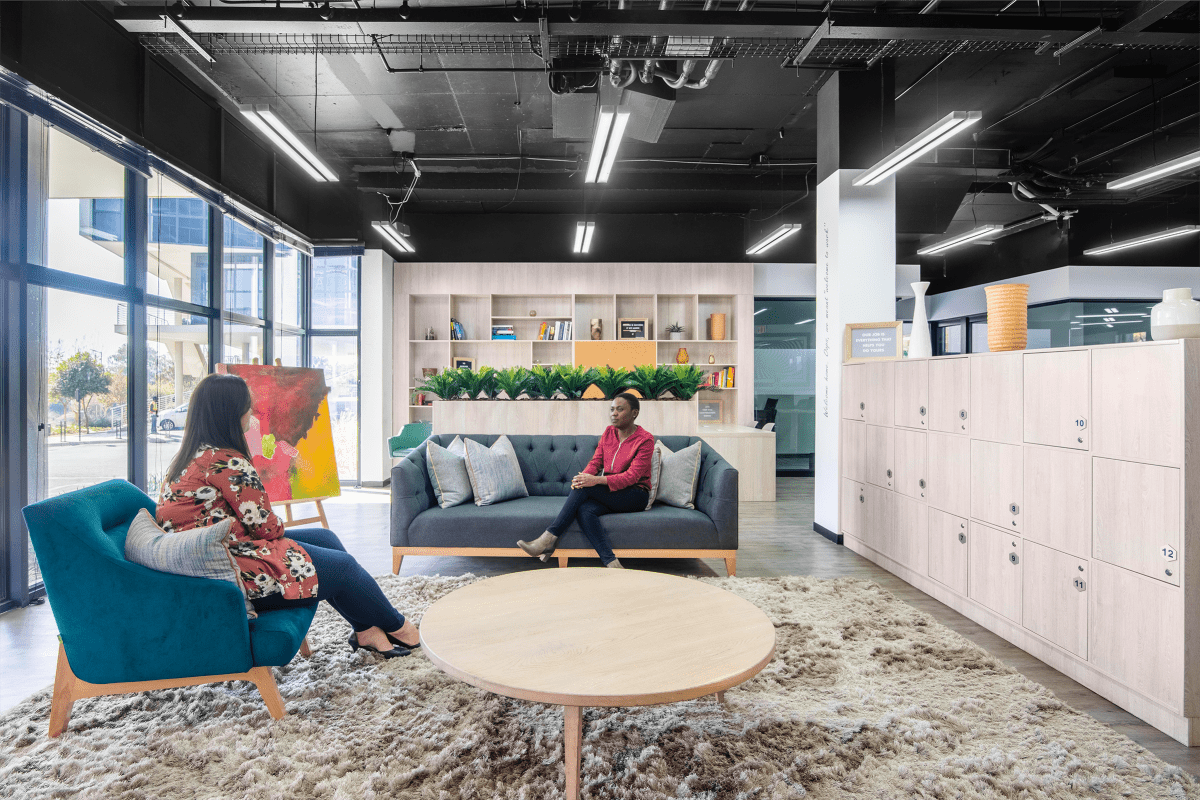At the recent CoreNet Global Summit in Chicago, Luigi Sciabarrasi (AECOM Corporate SVP, Global Real Estate), Jeff Doughman (IWG President, North America) and Chris Dyer (Founder, PeopleG2) came together for a lively discussion focused on how the pandemic has forever changed the employee experience. Each person shared their expertise on what workers now expect, how employers need to adapt, and how the workplace is transforming for a hybrid future.
Here, we dive into the key insights shared by Luigi, Jeff and Chris over the course of the conversation.
Flexibility is the key to a happier, more fulfilled workforce
The accelerated adoption of hybrid working over the last few years has brought with it a truly flexible mindset. It has created a working infrastructure and environment where people are empowered with more freedom to tailor their work schedule according to what suits them most, enabling them to be at their best and happiest. “From an employee perspective, one of their greatest concerns is being able to choose when and where they work,” said Doughman. “They no longer want to waste their time and money commuting into a central HQ every single day of the week when they can spend most of their week working just as efficiently from a local flexspace or home, while achieving a better work-life balance in the process.”
Employees who are no longer expected to commute long distances every single day of the week can achieve a better balance between their personal and professional lives, enabling them to dedicate more time to their family, friends and doing what the love, while also ensuring they can get everything done that they need to for work. Sciabarrasi commented: “At AECOM, we really want people to take that time to go to their son’s game, or drop their daughter off at school, or take care of their parents. It’s about being a company that cares for their employees, and providing that flexibility is so valuable.” IWG research puts into context just how important these work-life benefits and increased flexibility have become to employees, with 72% saying they would forego a 10% pay rise in favour of locking in the option to work remotely, and two thirds saying they wouldn’t even apply for a job if it didn’t offer hybrid working.
Employee wellbeing and the success of their company are inextricably linked
Happier, more engaged employees working in a way that’s convenient for them helps to deliver a productivity boost to companies that have switched to hybrid working. During the summit, Doughman pointed to a recent study published by Stanford economics professor, Nicholas Bloom, which found that companies that have embraced the hybrid model can effectively boost their productivity by 3-4%. While it doesn’t sound like much, this figure can have a significant impact on a company’s bottom line.
Hybrid working is also an effective means of helping companies keep, and attract, talent. Employees that are happier and more content in their roles are less likely to quit, and therefore it’s no surprise that hybrid companies have seen their ‘stay rate’ grow and their ‘quit rate’ come down by as much as 35%. The Great Resignation, Sciabarrasi said, is proof that employees are willing to vote with their feet if they don’t get what they want, a point backed up by IWG research which found that 50% of employees would quit if asked to return to the office five-days a week.“If your employees can do their job remotely and they’ve got all the digital tools they need, if productivity is up and your clients are happy, what are you forcing them into the office five-days a week for? They’ll simply move on,” Sciabarrasi argued.
The sustainability of the hybrid model is also an important factor here. Cutting the daily commute is one of the single biggest steps a company can take in reducing their collective carbon footprint, and in a recent survey by IWG, 77% of employees agreed that commuting less is an important step in fighting the climate crisis. The environmental and social goals of a company are of particular importance to Gen Z, who will make up almost 30% of the workforce by 2025. Further research commissioned among this age group by IWG revealed that 48% would refuse to join a company if they did not have clear ESG goals, while 50% said they would quit if their employer backtracked on these targets.
One size does not fit all with hybrid work
When discussing how companies should approach the shift to hybrid, Dyer pointed out that the hybrid model is not just one-size-fits-all. Every company works in a different way, and therefore requires a well-thought-out hybrid strategy that is tailored their bespoke needs. Sciabarrasi firmly agreed, adding that companies should expect to beta test in order to land on the right approach. As a global consultancy firm operating across myriad markets and geographies, AECOM knew that they would have to experiment and evolve as they made the switch to hybrid. “When we adopted the model in 2016, we took a regional approach, starting with locations where we had leases expiring. Now, 50% of our properties around the globe have gone through some sort of transition.”
Sciabarrasi noted that this gradual shift has allowed them to learn what works and what doesn’t work. Over time, they have been able to review and refine their approach, ensuring that their hybrid model works for them as a business, while also enhancing the employee experience. “During Covid-19, we realised that we needed more structure. So, we worked with departments across the business, from HR to IT to Real Estate, to create a customised hybrid framework for each region, type of business and employee. It took a year, but it built a solid foundation that gives our business and our people the freedom and flexibility to grow.”
As the world’s largest provider of flexible workspace, with 3,500 locations across 120 markets, IWG is perfectly placed the help customers navigate the new world of work, with customised solutions designed to help boost productivity, enhance employee wellbeing and make a meaningful impact to the bottom line.
A purposeful workspace will cultivate company culture and creativity
In a hybrid world where employees don’t spend all of their time together, it’s critical to provide inspiring, high-quality workplaces that people want to spend time in, whether this is at the company HQ, or a flexible workspace. Doughman said: “If you are bringing people back together to connect, collaborate and be creative, then it has to be in a place that suits this purpose. The days of coming in to work in soulless cubicles are very much over.” Sciabarrasi agreed: “If you think employees are going to come into the office to make phone calls and send emails, you’re wrong. There has to be a purpose to come into the office. We want employees to come in to socialise, we want them to have that water cooler conversation.”
Being intentional about how, when, and where hybrid employees come together is key to fostering a strong sense of company culture, sparking creativity and collaboration, and enhancing the overall employee experience. While the HQ can serve as a central location for employees to meet up and participate in company meetings, training and events, having access to a network of inspiring, high-quality flexible workspaces for the rest of the time opens up the chance to focus on independent work as well as network with other like-minded individuals and businesses.
Hybrid can help companies cut costs
With employees no longer expected to be in the company HQ all at the same time, businesses can look to right-size their real estate footprint, boosting this with flexible workspace that gives them flexibility without being locked into lengthy contracts. It’s a no-brainer for profit, with research from Global Workplace Analytics showing that hybrid working can save companies $11,000 per employee per year. “The realisation that hybrid working can drive profitability by lowering overheads is persuasive, especially with commercial real estate leases going up for renewal. Businesses are smart and will do the right thing for their employees and shareholders to boost profit,” Dyer said. IWG’s latest study among FTSE 250 CFOs revealed that 87% regard hybrid as a more affordable business model. As we navigate an uncertain economic landscape with a global recession likely, the gains presented by adopting the hybrid model will only get more important, valuable and difficult to ignore.
Find out how IWG can help your business make the shift to hybrid, with advice on a people-centric workspace strategy and access to 3,500 flexible workspaces worldwide.






